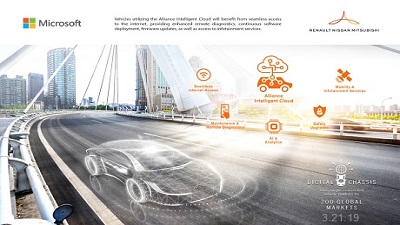|
Intel announced that its 9th generation mobile Core processor (H series) would be released soon. The announcement was made at Game Developers Conference in San Francisco. The General manager of premium and gaming notebook segments at Intel, Frederik Hemberger promised to release the processor very soon, in the second quarter of the year. Compared to previous CPU generations, the new processor includes a variety of exciting new features, especially for game lovers. But what are the gaming features that Intel promises to bring in this new chip? Any guesses? No? Then keep reading to learn more. Intel’s sources claimed that this new processor would provide a “more rounded experience for gamers”. It offers an optimum environment for gaming and streaming. Not only this, but it would also be able to operate triple -A (AAA) titles with the option of recording and streaming on Youtube and Twitch. The exact date of Intel’s 9th-gen processor's release is still a mystery and yet to be announced by the company. However, we expected the new CPU to be released in July 2019. Intel‘s 9th-gen mobile Core processor is based on the older 14nm Coffee Lake architecture. As the previous 8th generation H series CPUs consist of 6 cores, so it is expected that the 9th -gen processor may contain 8 cores. Further details can be found on OUR FORUM. Facebook on Thursday said it has fixed a security issue wherein millions of its users' passwords were stored in plain text and "readable" format for years and according to reports, were searchable by thousands of its employees. The report by KrebsOnSecurity claimed on Thursday around 200-600 million Facebook users may have had their account passwords stored in plain text and searchable by over 20,000 Facebook employees. In a blog post later, Facebook said as part of a routine security review in January, it found that some user passwords were being stored in a readable format within our internal data storage systems. "This caught our attention because our login systems are designed to mask passwords using techniques that make them unreadable. "We have fixed these issues and as a precaution will be notifying everyone whose passwords we found stored this way," wrote Pedro Canahuati, VP Engineering, Security and Privacy at Facebook. The company, however, said these passwords were never visible to anyone outside of Facebook. "We have found no evidence to date that anyone internally abused or improperly accessed them. We estimate that we will notify this to hundreds of millions of Facebook Lite users, tens of millions of other Facebook users, and tens of thousands of Instagram users. More details can be found on OUR FORUM. The Renault-Nissan-Mitsubishi alliance will debut its next-generation connected-car platform later this year in the Nissan Leaf electric vehicle and redesigned Renault Clio small car. Dubbed the Alliance Intelligent Cloud, the new platform will help drivers navigate and service their cars while providing the automakers troves of data to channel into self-driving car systems. "This will have a huge impact on the customer experience," Kal Mos, global vice president of connected vehicles at Renault-Nissan-Mitsubishi, told Automotive News. "And all this will help us design the car better and better meet customer needs." The technology was developed by the auto group and U.S. technology giant Microsoft using Microsoft's Azure platform. The tie-up was announced in September 2016. The rollout is a step toward positioning connectivity as a cornerstone of alliance automotive technology. At Nissan, for instance, it figures into a brand strategy called Nissan Intelligent Mobility, which prioritizes development of connectivity, electrification and autonomous driving. The alliance wants 90 percent of its new vehicles to be connected by 2022. Microsoft is working on connectivity with other automakers, including Volvo and BMW. But Nissan and Renault will be the first to use Microsoft's entire suite of software. Using Microsoft's cloud technology, the software allows automakers to access the vehicle's data to predict maintenance as well as gather driver data for research. In the future, it might also be leveraged to operate Microsoft services such as Office 365 and the virtual assistant Cortana. It will provide real-time and contextual navigation, helping drivers time traffic lights, dodge highway backups, search for the nearest Starbucks or find the nearest, cheapest fuel station. Learn more from OUR FORUM. |
Latest Articles
|


